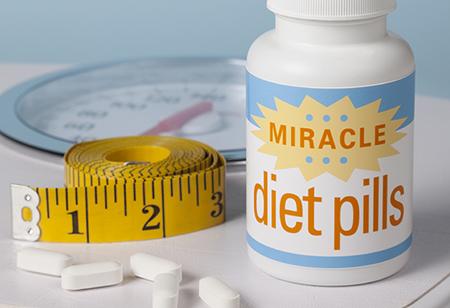When you want to lose weight, you want it to happen quickly. However, it usually takes consistent commitment and twice as much time as we'd like to drop even a few pounds. From prescription weight loss products to the plethora of over-the-counter options, surely something out there can help, right?
Heather O'Toole, MD, formerly a primary care physician at HonorHealth Medical Group, specializes in weight loss counseling and support. She prefers the tried-and-true practices of healthy eating and exercise, and rarely prescribes medication for weight loss for the following reasons:
2. The cost of diet pills doesn't measure up to the results
Above and beyond health and safety concerns, Dr. O'Toole also shies away from weight loss medications because of their cost and less-than-stellar results.
Trials of the three drugs mentioned above report modest weight loss, averaging 5 to 10% over a 12-month period. Stack that against a price tag of more than $200 per month, and the cost per pounds dropped is quite staggering. Furthermore, weight loss medications may not be appropriate for long-term use.
Of course, there's also an abundant supply of over-the-counter weight loss supplements you could turn to, but according to Dr. O'Toole, they're a gamble, offering no guarantees on their safety, efficacy or even that what you pay for is truly what you get.
With two-thirds of Americans being overweight or obese, it's no surprise that the weight loss supplement industry is a lucrative one. Not being regulated by the FDA means safety standards, testing and authenticity claims for these supplements leave much to be desired. Just because a product is sold without a prescription doesn't mean it's safe.
So, if you're trying to lose a few pounds, think back to that age-old advice: Eat healthy, real foods, avoid sugar and processed foods, and exercise regularly. That truly is the best recipe for long-term, sustainable and affordable weight loss, and it works!
